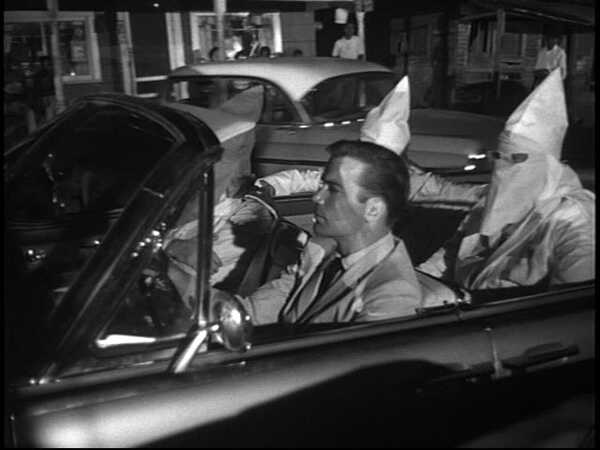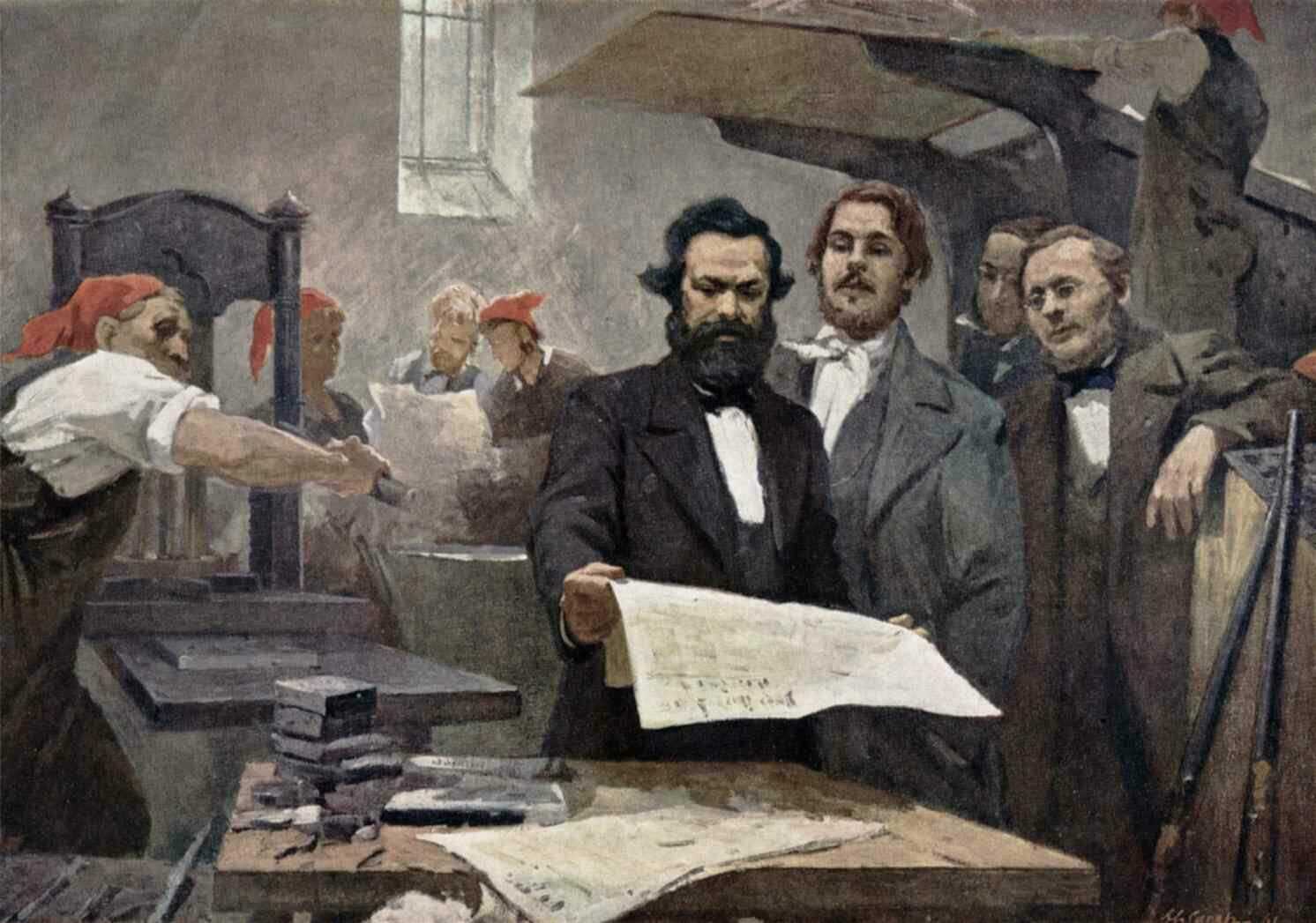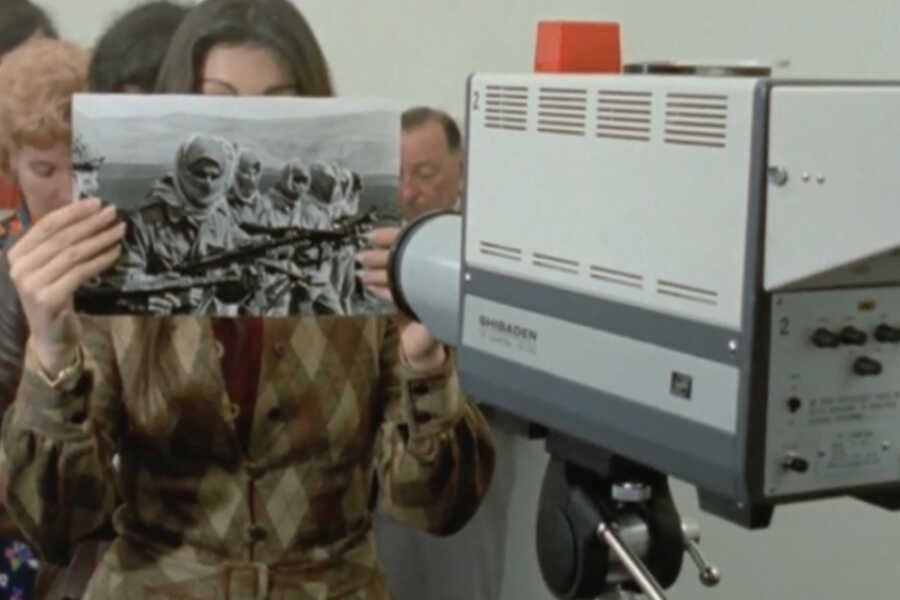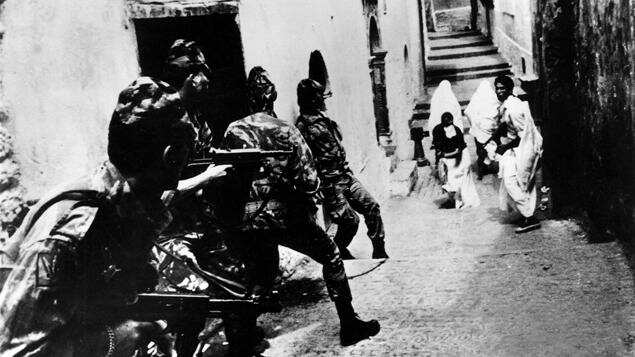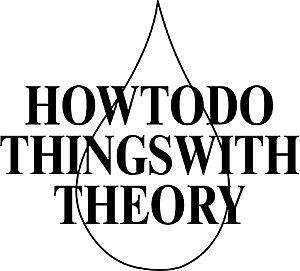Counter, Revolution, Film ~ Ghalya Saadawi's seminar from Confluence to Confluence
May 2024: confluence 5 in Middelburg
As the title of this session states, we will be looking into Adorno’s take on Freud’s mass or group psychology and his discussion of narcissism of the ego to understand further some of the egoic and superegoic functions that are involved in promulgating propaganda, fascist slogans, and the vacuous adherence to fascist leaders (as these relate to the father and the primal horde and beyond), and what these entail from a Freudian and critical theory lens. This will be coupled with the first chapter of Late Fascism (and also chapter 3), which also begins to outline the difference and similarities between interwar fascism and current day iterations with an emphasis on what Marxist analysis may need to understand in current and the overall phenomenon of fascism if it is not to make similar analytical mistakes to its predecessors. In view of these, we watch “The Great Dictator” (1940) and a segment of the agitator’s speeches and comportment in “The Intruder” (1962).
Readings:
Theodor Adorno. "Freudian Theory and the Pattern of Fascist Propaganda." In The Culture Industry. Edited by J. M. Bernstein. London: Routledge, 1991.
Alberto Toscano. Late Fascism: Race, Capitalism, and the Politics of Crisis. London: Verso, 2023. Chapters 1 and 3.
Optional:
Sigmund Freud. “Group Psychology and the Analysis of the Ego.” In The Standard Edition of the Complete Psychological Works of Sigmund Freud volume 18. Edited James Strachey. London: Macmillan, 1921, 1955.
Sheldon, George, and Derek Hook (eds.). Lacan and Race: Racism, Identity, and Psychoanalytic Theory. New York: Routledge, 2022. Introduction.
Todd McGowan. Universality and Identity Politics. New York: Columbia University Press, 2020.
Todd McGowan. The Racist Fantasy: Unconscious Roots of Hatred. London: Bloomsbury, 2022.
Screen:
Charlie Chaplin, “The Great Dictator” (1940).
Roger Corman, “The Intruder” (1962).
Nate Parker, “The Birth of a Nation” (2016).
Adam Curtis, “The Living Dead” (1995).
April 2024: confluence 4 in Essaouira
Between Historical Materialism, Social Totality and Revolution
Between understanding and mapping the notion (and reality) of totality as it later appears in Western Marxism, we must briefly voyage back to the early few lines on what may define historical materialism in Marx’s preface and the longer review by Engels of Contribution to the Critique of Political Economy, as well as to readings that trace what has come to be called Western Marxism, into the mostly present conjunctural question of cognitive mapping as it appears in Cartographies of the Absolute.
readings:
Karl Marx. Preface to the Contribution to the Critique of Political Economy (2 pages) https://www.marxists.org/archive/marx/works/1859/critique-pol-economy/preface.htm
Karl Marx. Pre-Capitalist Economic Formations. Translated by Jack Cohen. Introduction by E. J. Hobsbawm. New York: International Publishers, 1964. Introduction.
Alberto Toscano and Jeff Kinkle, Cartographies of the Absolute. Winchester: Zero Books, 2015. Introduction and Part II.
additional readings:
Perry Anderson. Considerations on Western Marxism. London: Verso, 1976.
Raya Dunayevskaya. Philosophy and Revolution from Hegel to Sartre, and from Marx to Mao. New Jersey: Humanities Press. Chapter 2, pp. 47-60.
Martin Jay. Marxism and Totality. The Adventures of a Concept from Lukacs to Habermas. Berkley: University of California, 1984. Introduction and Chapter 2 (read what you can).
screenings:
Alexander Kluge (dir.), Marx and Eisenstein, 2008.
Sydney Lumet(dir.), Network, 1972.
March 2024: confluence 3 at PAF
This seminar will consider the Palestinian revolution in the 60s and 70s via Jean Luc Godard's and Anne Marie Mieville's Içi et Ailleurs (1976). As part of the Dziga Vertov Group's methodological injunction to make political films, politically, Godard, Jean-Pierre Gorin and Mieville film this footage of Palestinian fidayeen in 1969-1970, only to make and edit Içi et Ailleurs in the context of Paris several years later, once many of those fighters had been killed in Black September, and the battle for Palestine still raged in a different form. Bringing in the class contradictions and struggles of France itself at the time into the edit, as well as the central social role played by images, the film encodes how cinema contends with political struggle, how cinematic images are constructed, what absent images inform the ones we do see, and what militant political cinema, at a distance, may look like.
readings:
Irmgard Emmelhainz. “Before Our Eyes: Les Mots, Non Les Choses.” PhD dissertation, University of Toronto, 2009. Selections.
Irmgard Emmelhainz. Jean-Luc Godard’s Filmmaking. London: Palgrave McMillan, 2019. Introduction and selections.
D. N Rodowick. The Crisis of Political Modernism: Criticism and. Ideology in Contemporary Film Theory. Berkley: University of California Press, 1988, 1994. Introduction and selections.
Rula Shawan, “Içi et Ailleurs: The Backstory.” Senses of Cinema: Forms that Think Jean-Luc Godard, Issue 100, January, 2022. https://www.sensesofcinema.com/2022/forms-that-think-jean-luc-godard/ici-et-ailleurs-the-backstory/
additional readings:
Fardi A. Bardawil. Revolution and Disenchantment. Durham and London: Duke University Press, 2019. Chapter 3 + 4
Ghassan Kanafani, “The 1936-39 Revolt in Palestine.” New York: Committee for a Democratic Palestine, 1972. https://www.marxists.org/archive/kanafani/1972/revolt.htm
“The Popular Front and External Operations.” 1971
January 2024: confluence 2 at NAC, Nida
“That peaceful violence that the world is steeped In”
We will read Fanon’s exploration of the dialectical relation between the colonised and the coloniser; the struggle through violence of freedom, the rola and psychic state of the national bourgeois ruling classes and national rulers between metropole and colony; and the politics of neutralism, among others. We consider arguments of legal rupture made by Jacques Verges in the Schroeder documentary on the Algerian liberation struggle. We will consider the Pontecorvo film, La Bataille D’Algers through Fanon, and formally through its documentary. We read Toscano’s commentary on the legacy of French intellectual history inflected through its responses to and engagements with the Algerian war of independence and the so-called subject of decolonization.
Readings:
Fanon, Frantz. “On Violence.” In The Wretched of the Earth, 28-84. Translated by Constance Farrington. London: Penguin, 1963.
Additional readings:
Byrd, Dustin J and Seyed Javad Miri. Frantz Fanon and Emancipatory Social Theory: A View from the Wretched. Leiden and Boston: Brill, 2020.
Byrne, J. J. Mecca of Revolution: Algeria, Decolonization and the Third World Order. Oxford: Oxford University Press, 2016.
Le Sueur, James D. Uncivil War: Intellectuals and Identity Politics During the Decolonization of Algeria. Lincoln: University of Nebraska Press, 2005.
Toscano, Alberto. “The Name of Algeria: French Philosophy and the Subject of Decolonization.” Viewpoint Magazine February 1, 2018. https://viewpointmag.com/2018/02/01/name-algeria-french-philosophy-subject-decolonization/.
Films:
Gilles Pontecorvo (dir.), La Bataille d’Algers (1966).
Barbet Schroeder (dir.), The Devil's Advocate (2007). Parts, esp first half.
November 2023: introduction days at PAF, St. Erme:
DAI-BULLETIN 2023—2024 nr. 1 November 2023

